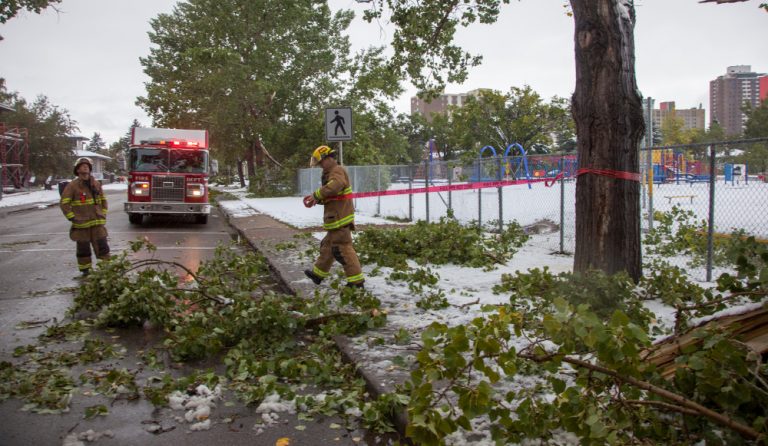
When an extreme weather event impacts a municipality, the Municipal Council can leverage a range of internal and external programs and organizations to respond to the event and complete recovery activities.
The roles of internal agencies and the nature of funding programs varies by municipality, but in Alberta it is a legal requirement that every municipality has an emergency management agency, which can carry out planning, response operations, and co-ordination related to extreme weather events.
Municipalities also work closely with societies, corporations, communities, and non-profit agencies (e.g. Red Cross, Salvation Army) [1] to deliver relief services. As covered in our pages on provincial and federal responses, municipalities also play a role in coordinating provincial and federal funding programs [2].
While municipalities play a significant role in responding to extreme weather events, it is important to note that in most situations, they do not provide financial relief directly to their citizens.
For example, The City of Calgary used money from its “rainy day fund” to enable public and private tree clean up following the Snowtember event in 2014, but did not provide funds to individual Calgarians to clean up their private property [3].
It is also important to note that not all extreme weather events related to water will elicit an emergency response from a municipality. There are many examples of municipalities using their emergency management agencies to respond to flood, snow, and rain events, but not every storm necessitates a municipal response.
Share this Post:
We provide Canadian educational resources on water practices to promote conservation and sustainability. Our team crafts current and relevant content, while encouraging feedback and engagement.
The Canada WaterPortal is a registered charity, #807121876RR0001
We recognize and respect the sovereignty of the Indigenous Peoples and communities on whose land our work takes place.
© 2025 All Rights Reserved.